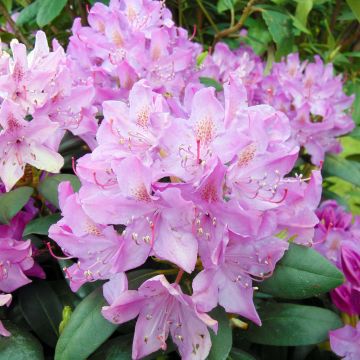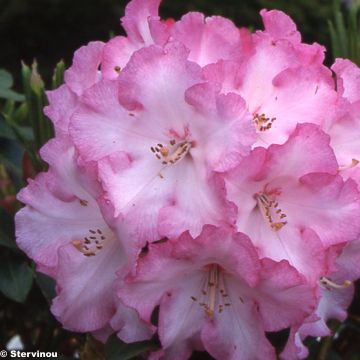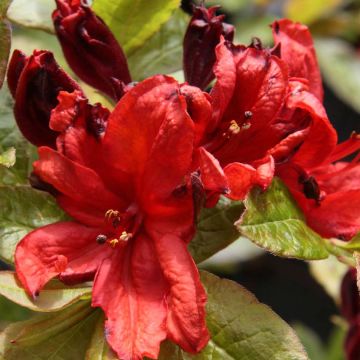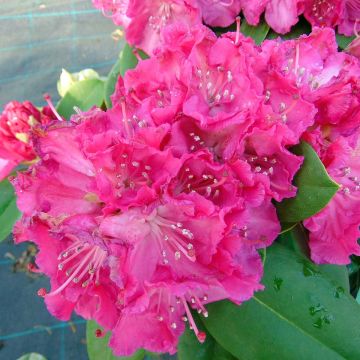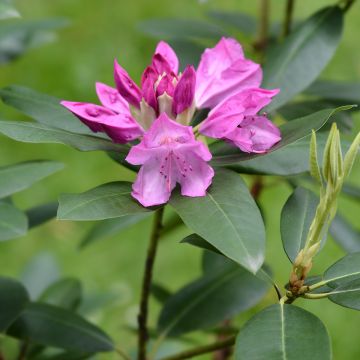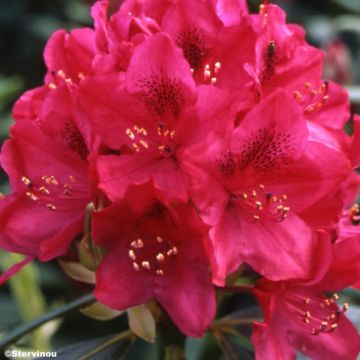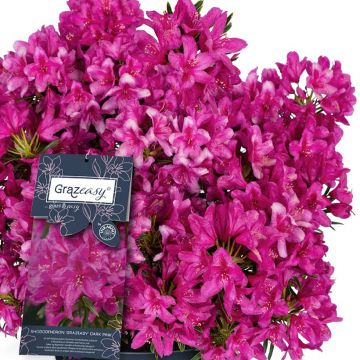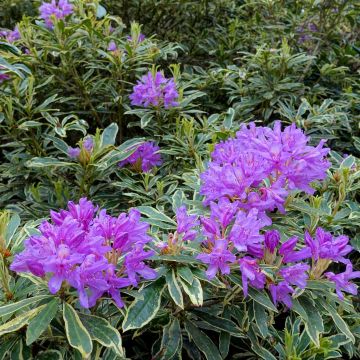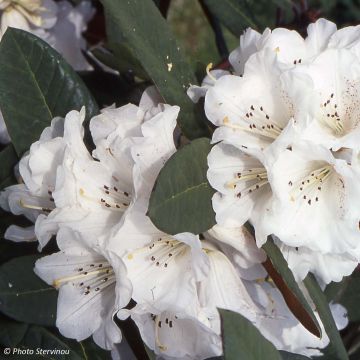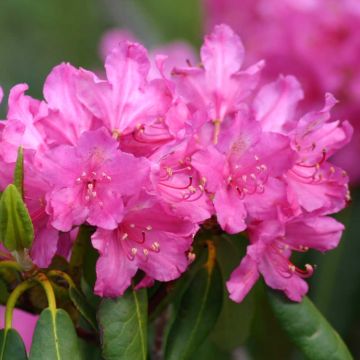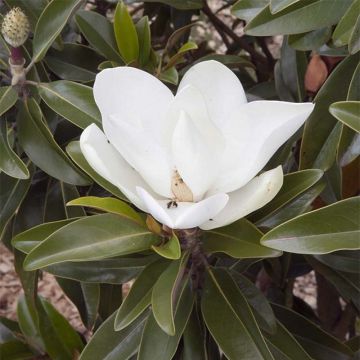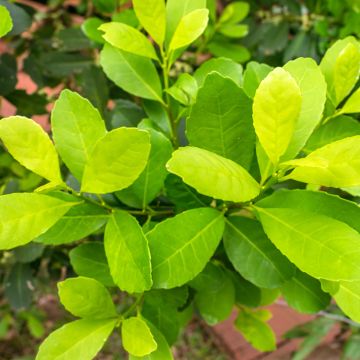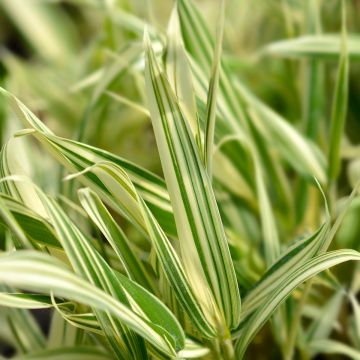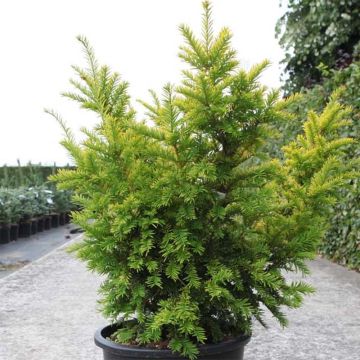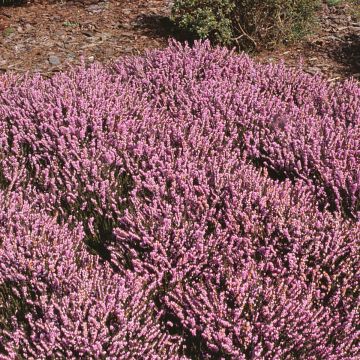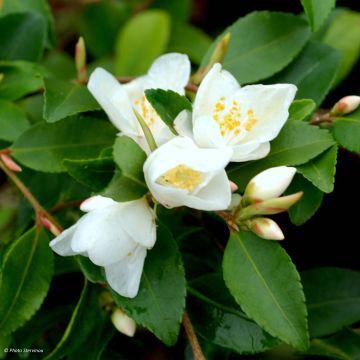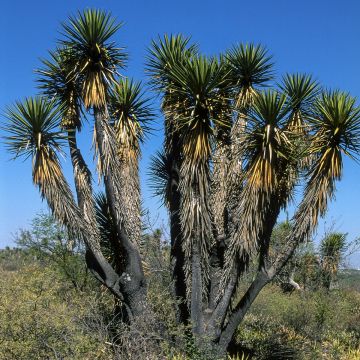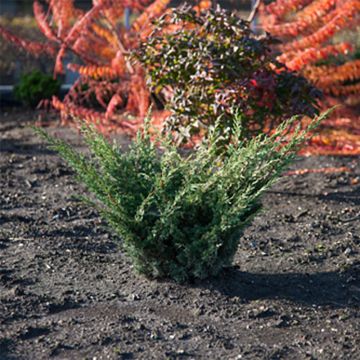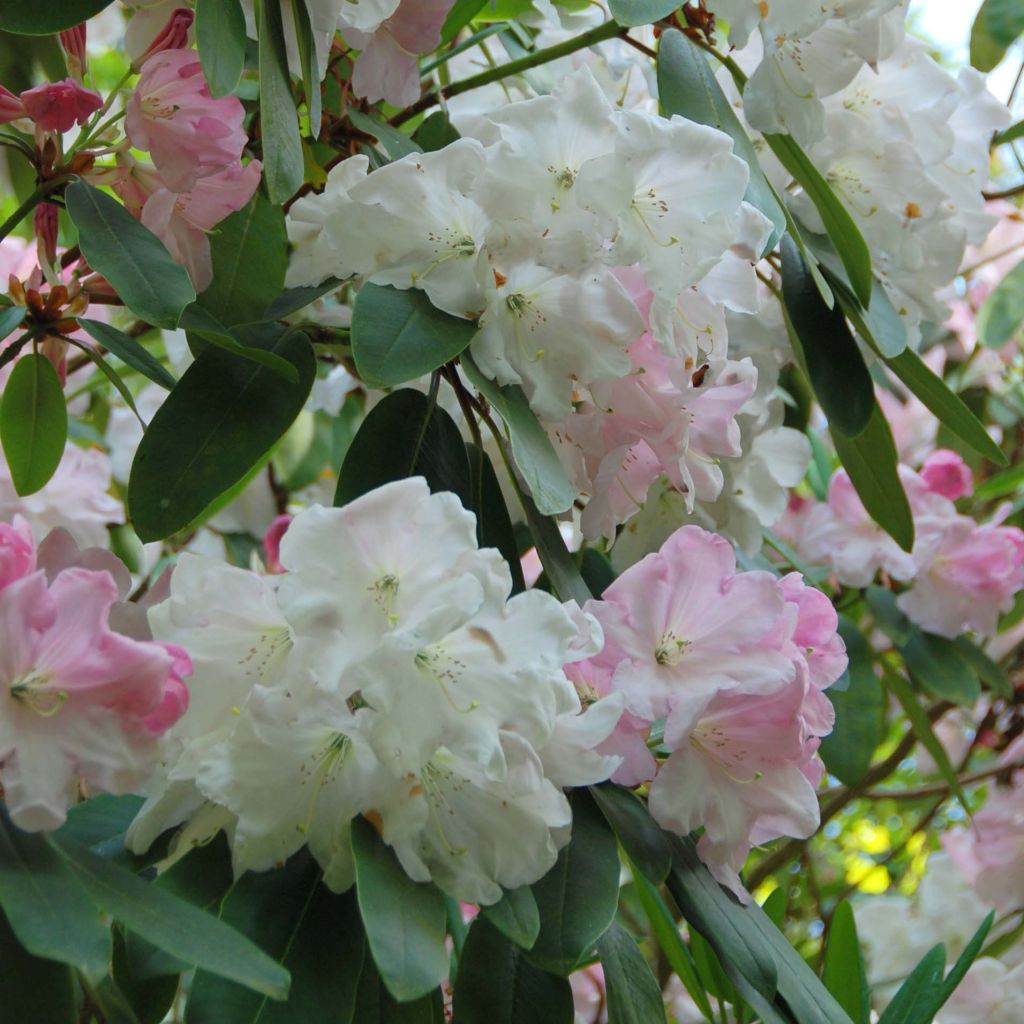

Rhododendron loderi King George
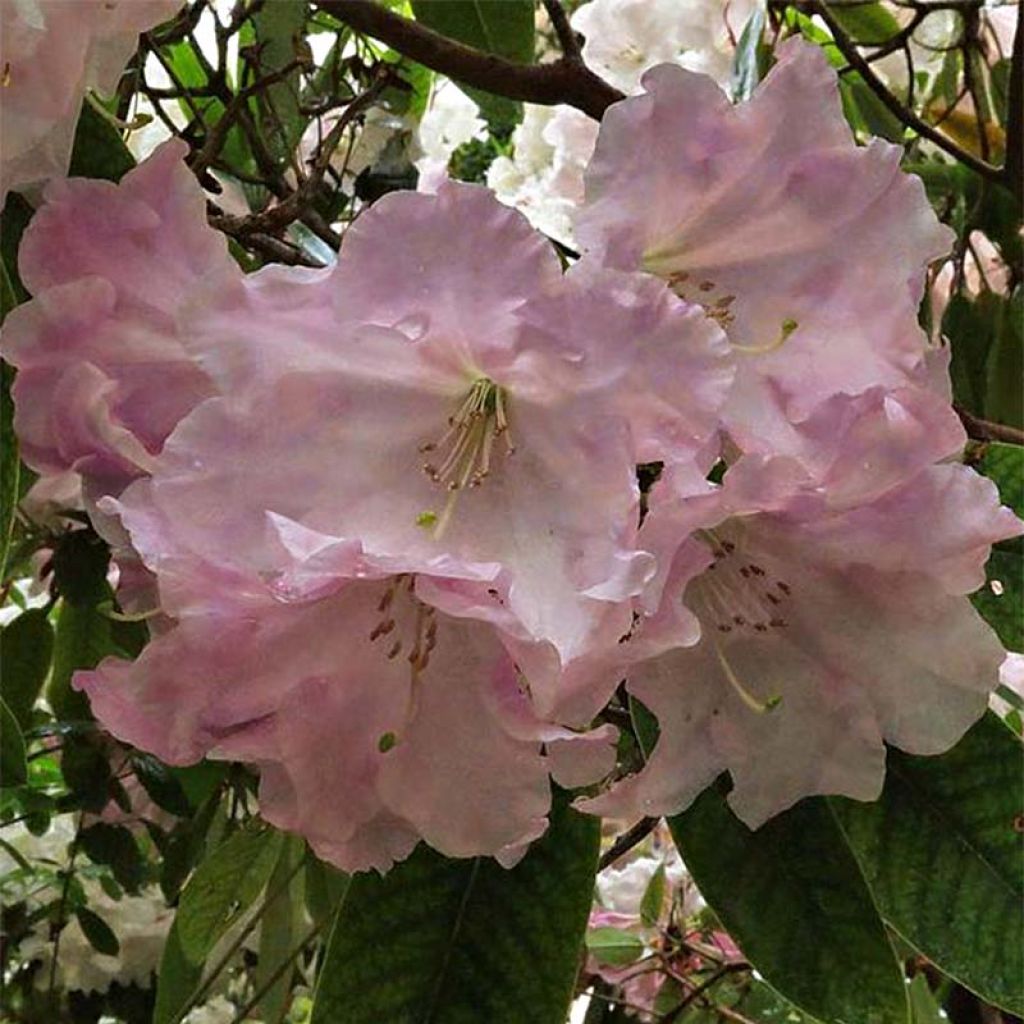

Rhododendron loderi King George
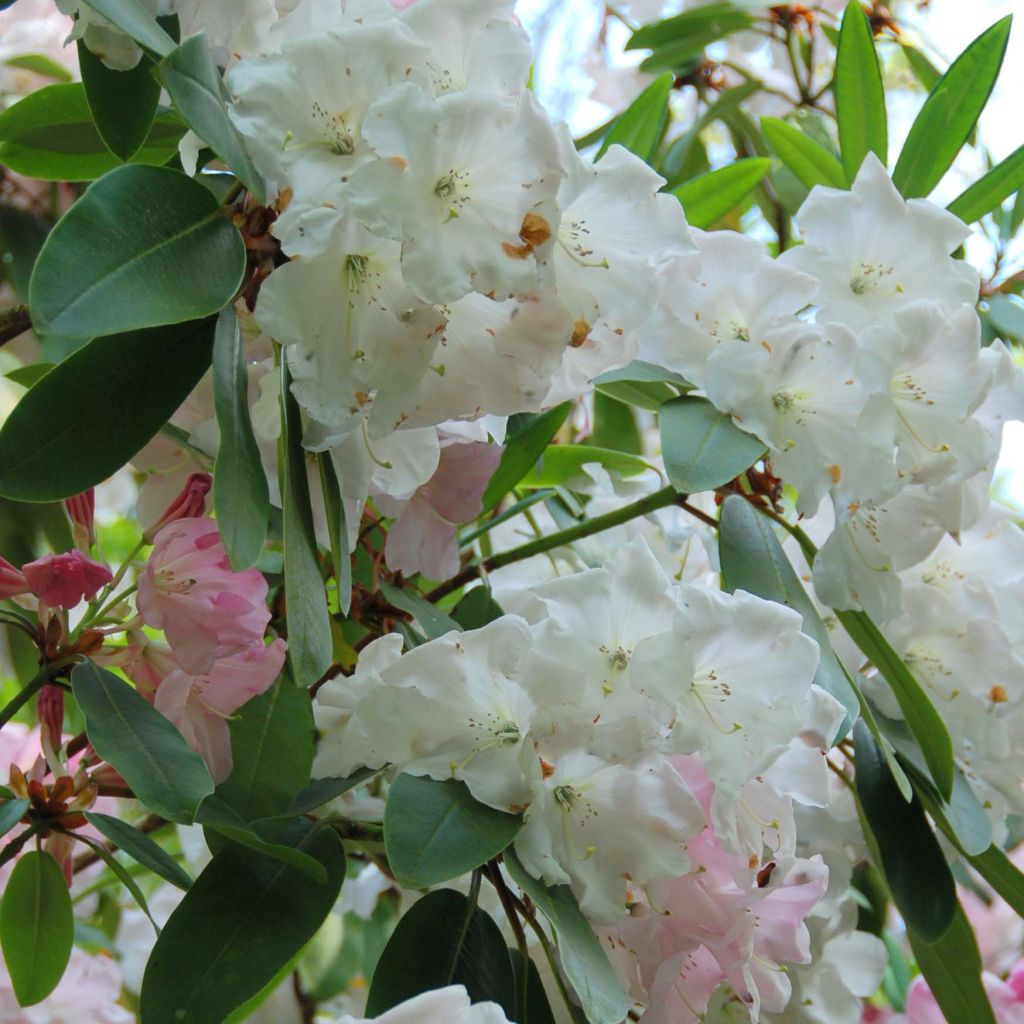

Rhododendron loderi King George
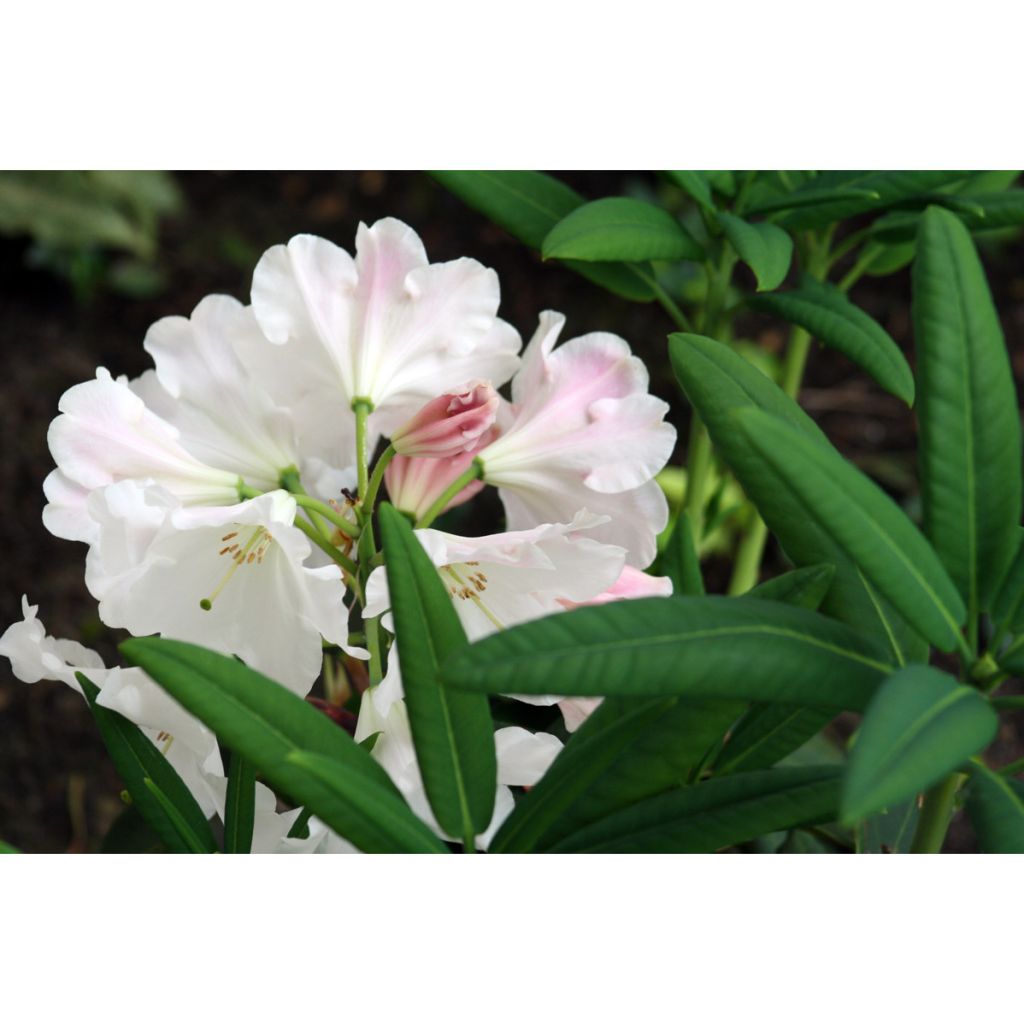

Rhododendron loderi King George
Rhododendron loderi King George
Rhododendron loderi King George
Rhododendron
This item cannot be shipped to the selected country
Delivery charge from €5.90
More information
Schedule delivery date,
and select date in basket
This plant carries a 24 months recovery warranty
More information
We guarantee the quality of our plants for a full growing cycle, and will replace at our expense any plant that fails to recover under normal climatic and planting conditions.
From €5.90 for pickup delivery and €6.90 for home delivery
Express home delivery from €8.90.

Does this plant fit my garden?
Set up your Plantfit profile →
Description
Rhododendron 'King George' is a true shade star in spring. This old variety, awarded in England in 1968, remains exceptional for its vigour and hardiness, but also and above all for its spring flowering, as sumptuous as it is fragrant. On this almost tree-like variety, the size of an adult, pink bouquets bloom in April-May, opening into almost white flowers diffusing a sweet fragrance in calm weather. The bush has a wide habit and is adorned with attractive dark green foliage all year round. It will create a dazzling display in ericaceous beds exposed to shade or partial shade.
Rhododendrons belong to the heath family, just like heathers. They are divided into 'sections', grouping certain botanical characteristics and cultural requirements.
The 'King George' variety is part of the 'loderi' hybrid cultivars. This group originates from Rhododendron x loderi, resulting from the cross-breeding of an exceptionally hardy and fragrant R. fortunei form and an exceptional R. griffithianum form. The result is an exceptional plant, combining the tree-like habit of its 2 parents, peeling bark in shades of pink and cinnamon, beautiful emerald green foliage, and large fragrant flowers in shades of pink and white. Loderi Rhododendrons are exceptional, and the 'King George' cultivar is no exception to the rule.
'King George' is almost shrub-like, taller than it is wide. It reaches a height of about 1.7m (6ft) and a width of 1.2m (4ft) at maturity. Under particularly favourable conditions, the bush can reach a height of up to 1.9m (6ft). The branches are abundantly covered with persistent oval foliage, with a glossy emerald green colour. It is a rather slow-growing plant, but very vigorous and hardy. In April-May, its spectacular flowering begins with the appearance of large clusters of bright pink buds. These inflorescences are corymbs that bear many large and fragrant flowers. The pink buds open into delicately pink flowers, becoming almost white, marked with green at the throat. The shape of the flowers, funnel-shaped, resembles that of petunias. The throat of the flower also features beautiful yellow-green stamens.
Rhododendron King George, a large shrub for ericaceous, schist or peat soil, will find its place in shade or partial shade in a moist, humus-rich and well-drained soil with an acidic pH. Hardy in much of Europe, it will only reach its full potential in a humid and cool climate. It can be used as a standalone plant, in a hedge or in a large shrub bed, especially with other heath plants. It can be combined with Chinese azaleas, with their pastel flowers complementing their warm tones, magnolias, andromedas (Pieris), mountain laurels (Kalmia), and Japanese maples with yellow, green or purple foliage... It can also be planted in a very large pot on the terrace, taking care to provide it with fertilizer and rainwater (or soft water) for watering.
Report an error about the product description
Rhododendron loderi King George in pictures
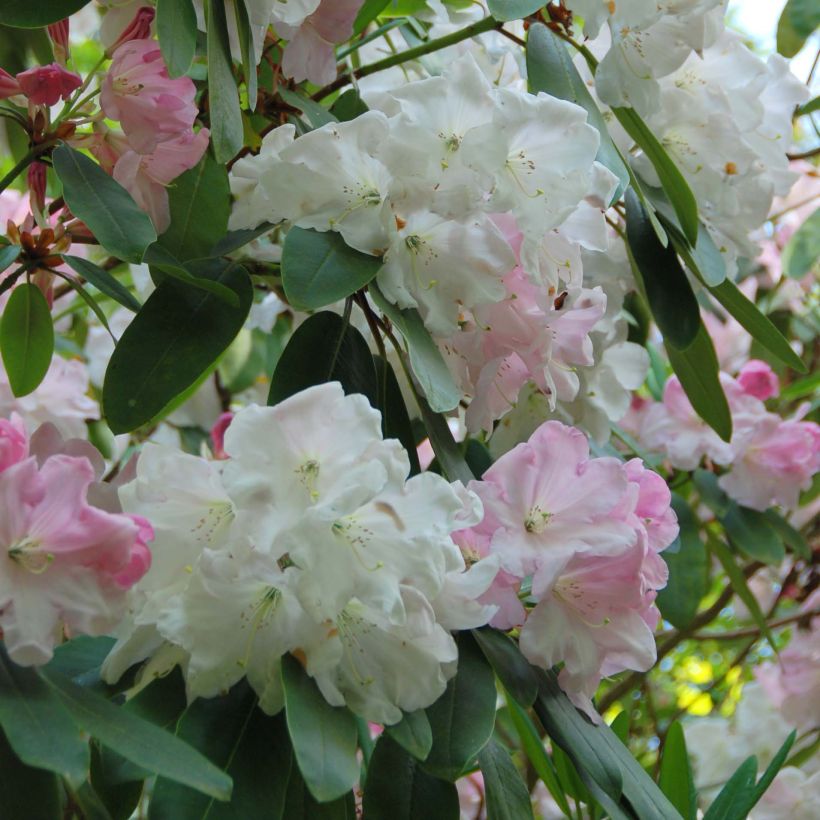

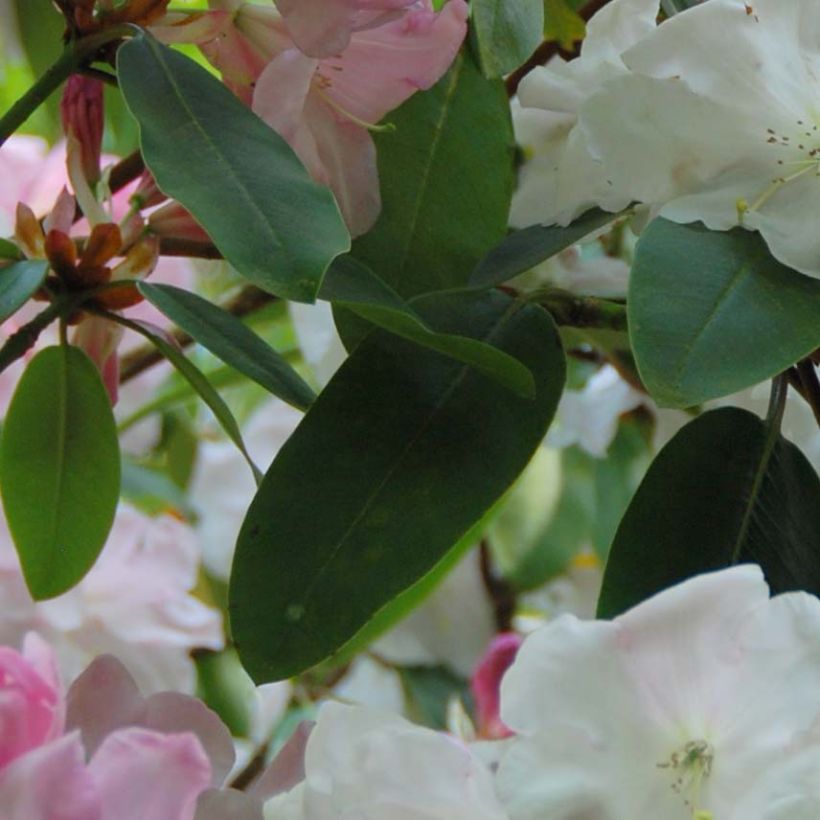

Plant habit
Flowering
Foliage
Botanical data
Rhododendron
loderi
King George
Ericaceae
Rhododendron
Cultivar or hybrid
Other Large Rhododendrons
Planting and care
Plant Rhododendron loderi 'King George' in a shaded or semi-shaded position, protected from cold and drying winds, in a moist, humus-rich, and light soil with an acidic tendency. Like all plants of ericaceous soil, it does not tolerate limestone soils or heavy soils saturated with water in winter. Dig a hole three times larger than the pot. Soak the root ball in non-limestone water and plant the bush at the collar level, in a mixture composed of leaf compost, gravel or pumice, and loam. Water thoroughly and keep the soil moist in the summer. Azaleas and Rhododendrons have a shallow root system. Therefore, they are sensitive to long periods of drought. That's why it is advisable to enrich the soil with humus and water abundantly during dry periods. In addition, this root system is not very strong, so it is essential to lighten heavy soils with draining materials (gravel, pumice, clay balls) when planting. Apply a mulch of crushed pine bark at the base of the bush every spring to maintain soil moisture while preserving an acidic pH. Maintenance consists of removing faded flowers in summer and removing dead branches.
Azaleas and Rhododendrons can sometimes be attacked by weevils that eat the edges of leaves and rootlets, as well as the famous "Rhododendron beetle," which does not often cause severe damage. Yellowing of leaves (chlorosis) in Rhododendrons indicates poor assimilation of iron from the soil and can cause premature death of the plant. While limestone is often the cause, poorly drained soil or deeply planted root balls can also explain the phenomenon.
Planting period
Intended location
Care
-
, onOrder confirmed
Reply from on Promesse de fleurs
Evergreen shrubs
Haven't found what you were looking for?
Hardiness is the lowest winter temperature a plant can endure without suffering serious damage or even dying. However, hardiness is affected by location (a sheltered area, such as a patio), protection (winter cover) and soil type (hardiness is improved by well-drained soil).

Photo Sharing Terms & Conditions
In order to encourage gardeners to interact and share their experiences, Promesse de fleurs offers various media enabling content to be uploaded onto its Site - in particular via the ‘Photo sharing’ module.
The User agrees to refrain from:
- Posting any content that is illegal, prejudicial, insulting, racist, inciteful to hatred, revisionist, contrary to public decency, that infringes on privacy or on the privacy rights of third parties, in particular the publicity rights of persons and goods, intellectual property rights, or the right to privacy.
- Submitting content on behalf of a third party;
- Impersonate the identity of a third party and/or publish any personal information about a third party;
In general, the User undertakes to refrain from any unethical behaviour.
All Content (in particular text, comments, files, images, photos, videos, creative works, etc.), which may be subject to property or intellectual property rights, image or other private rights, shall remain the property of the User, subject to the limited rights granted by the terms of the licence granted by Promesse de fleurs as stated below. Users are at liberty to publish or not to publish such Content on the Site, notably via the ‘Photo Sharing’ facility, and accept that this Content shall be made public and freely accessible, notably on the Internet.
Users further acknowledge, undertake to have ,and guarantee that they hold all necessary rights and permissions to publish such material on the Site, in particular with regard to the legislation in force pertaining to any privacy, property, intellectual property, image, or contractual rights, or rights of any other nature. By publishing such Content on the Site, Users acknowledge accepting full liability as publishers of the Content within the meaning of the law, and grant Promesse de fleurs, free of charge, an inclusive, worldwide licence for the said Content for the entire duration of its publication, including all reproduction, representation, up/downloading, displaying, performing, transmission, and storage rights.
Users also grant permission for their name to be linked to the Content and accept that this link may not always be made available.
By engaging in posting material, Users consent to their Content becoming automatically accessible on the Internet, in particular on other sites and/or blogs and/or web pages of the Promesse de fleurs site, including in particular social pages and the Promesse de fleurs catalogue.
Users may secure the removal of entrusted content free of charge by issuing a simple request via our contact form.
The flowering period indicated on our website applies to countries and regions located in USDA zone 8 (France, the United Kingdom, Ireland, the Netherlands, etc.)
It will vary according to where you live:
- In zones 9 to 10 (Italy, Spain, Greece, etc.), flowering will occur about 2 to 4 weeks earlier.
- In zones 6 to 7 (Germany, Poland, Slovenia, and lower mountainous regions), flowering will be delayed by 2 to 3 weeks.
- In zone 5 (Central Europe, Scandinavia), blooming will be delayed by 3 to 5 weeks.
In temperate climates, pruning of spring-flowering shrubs (forsythia, spireas, etc.) should be done just after flowering.
Pruning of summer-flowering shrubs (Indian Lilac, Perovskia, etc.) can be done in winter or spring.
In cold regions as well as with frost-sensitive plants, avoid pruning too early when severe frosts may still occur.
The planting period indicated on our website applies to countries and regions located in USDA zone 8 (France, United Kingdom, Ireland, Netherlands).
It will vary according to where you live:
- In Mediterranean zones (Marseille, Madrid, Milan, etc.), autumn and winter are the best planting periods.
- In continental zones (Strasbourg, Munich, Vienna, etc.), delay planting by 2 to 3 weeks in spring and bring it forward by 2 to 4 weeks in autumn.
- In mountainous regions (the Alps, Pyrenees, Carpathians, etc.), it is best to plant in late spring (May-June) or late summer (August-September).
The harvesting period indicated on our website applies to countries and regions in USDA zone 8 (France, England, Ireland, the Netherlands).
In colder areas (Scandinavia, Poland, Austria...) fruit and vegetable harvests are likely to be delayed by 3-4 weeks.
In warmer areas (Italy, Spain, Greece, etc.), harvesting will probably take place earlier, depending on weather conditions.
The sowing periods indicated on our website apply to countries and regions within USDA Zone 8 (France, UK, Ireland, Netherlands).
In colder areas (Scandinavia, Poland, Austria...), delay any outdoor sowing by 3-4 weeks, or sow under glass.
In warmer climes (Italy, Spain, Greece, etc.), bring outdoor sowing forward by a few weeks.

































